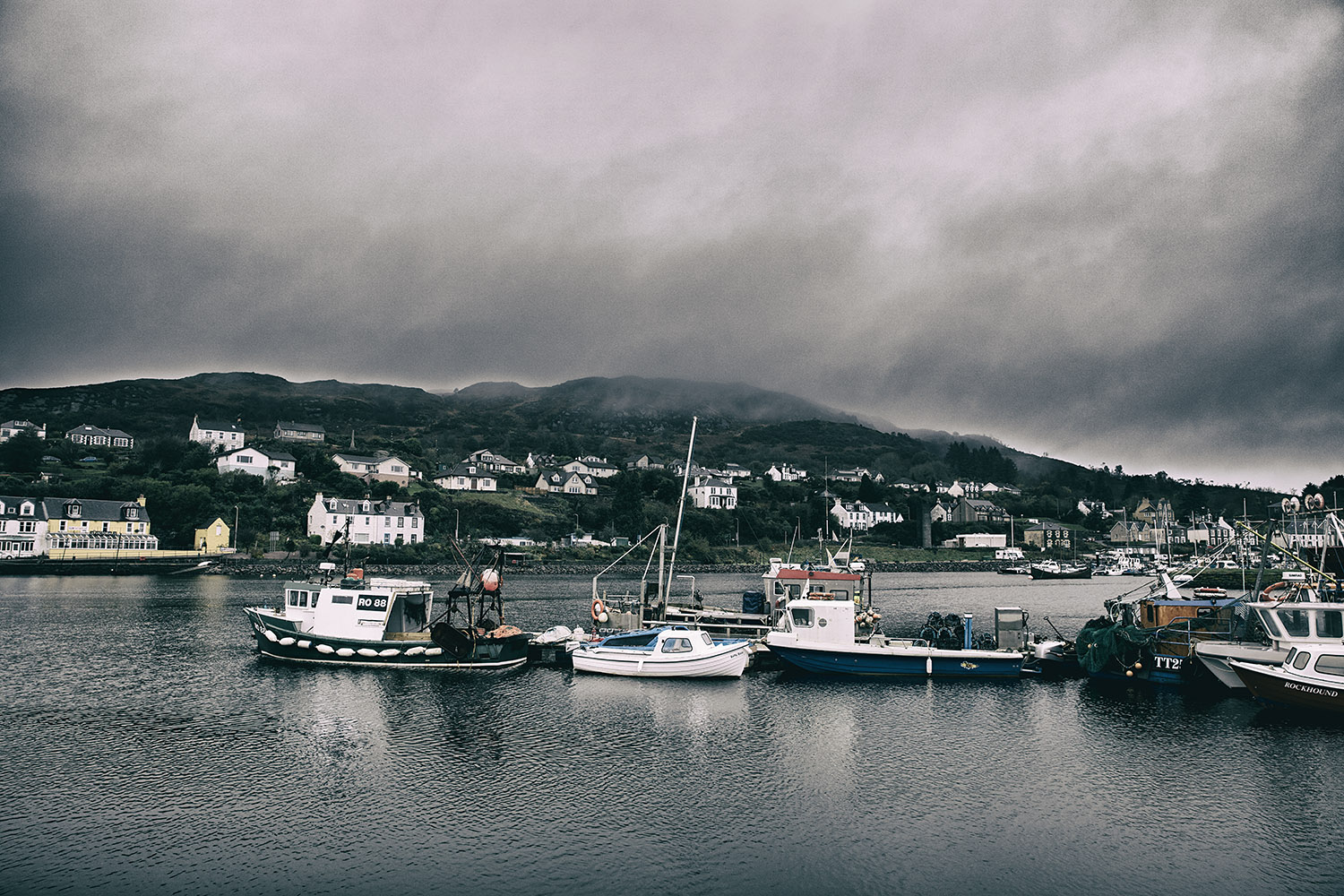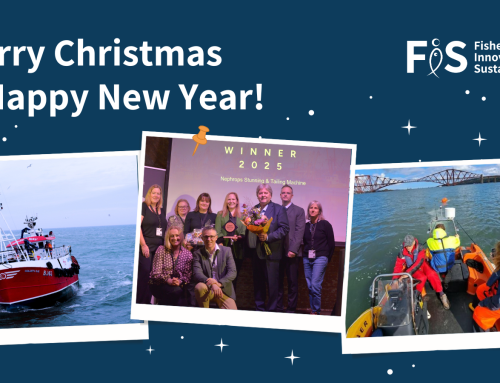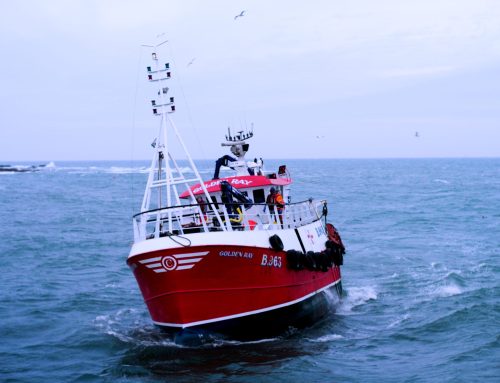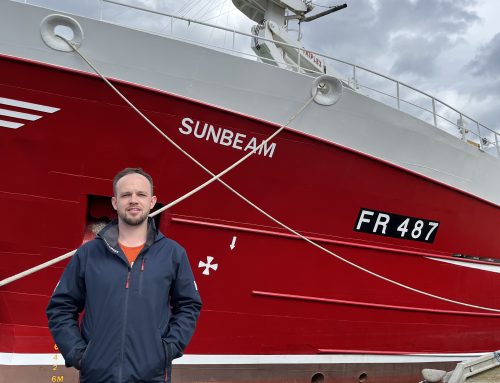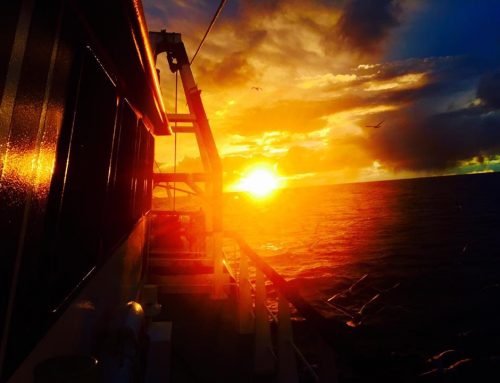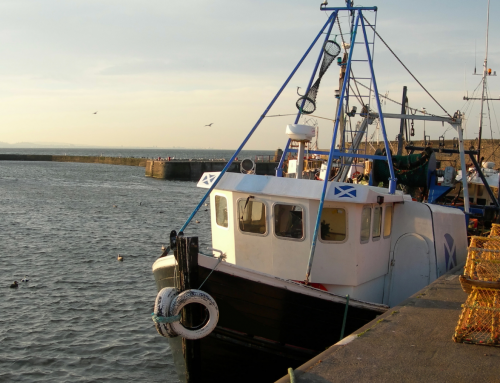The FIS Travel Bursary is awarded to applicants with the best proposal for a short international study trip that will help further their career and their ability to contribute to the sector in Scotland. Nicole Anderson, winner of the 2019 Travel Bursary, works for the Clyde Fisherman’s Trust (CFT) and has decided to travel to Maine, USA, where she will meet with the Maine Coast Fishermen’s Association (MCFA) and attend the Maine Lobster Festival.
In the first of a blog series about her travels, Nicole tells us about why she chose Maine, the importance of fishing heritage, and what she hopes to get out of the trip.
How did you first hear about this opportunity?
I first heard about the Travel Bursary when FIS tweeted to showcase the previous year’s winner. I thought that it was a unique and interesting opportunity as it was open to anyone working within the industry and wasn’t limited to one field. When I saw that the 2019 round had opened, I was eager to start on my own application.
Why did you choose Maine as your destination?
I was already aware of some fishing organisations in Maine through working with the Clyde Fishermen’s Trust (CFT). I became very interested in them as their goal is to ensure that Maine’s fishing communities thrive today and in the future by engaging in a variety of research, education and outreach projects directed by the needs of their fishing communities. This is very similar to the aims of the CFT, so, when it came to choosing where I would like to go, Maine was an obvious choice.

Clyde Fishermen Communities Faslane – KK Dunas https://www.kkdundas.com/
Once I started researching further, I soon realised that the Maine Coast and the West of Scotland had a lot more in common than I initially thought. Both are dealing with and have overcome similar issues within the industry and this is something that I will be looking at more during my trip. Additionally, both our communities have strong cultural ties to fishing, which for most fishermen is more than just a job – it’s a way of life. Despite being in different parts of the world, our communities share integral aspects of our identities.
How important is fishing culture and heritage to you?
Fishing is a national asset and its associated heritage and culture play an important role in not just the Clyde’s history and identity but in Scotland’s.
Much of Glasgow was built from the fishing industry. For example, the Briggait which is now home to the CFT, as well as several other cultural and arts organisations, was built by the fishermen themselves in 1873 and it was the city’s fish market for over 100 years. Also, the area of the city where the building is found, ‘The Saltmarket’, used to be where fisher folk would buy salt from.
Growing up in a small fishing town and having family and friends working in the industry, you could say that it is far easier for me to recognise the importance of understanding our fishing heritage and culture, but I think you shouldn’t have to have a tangible connection to recognise it. A lot of the work that we do with the CFT is educating our communities about their heritage and encouraging them to get involved in it, and I hope that on this trip I will discover new ways to do this.

First and last image courtesy of Wasps Studio C/O The Briggait. Middle image – Shades of Grey – Oscar Mazaroli photo Published 1987 – Fish Market 1969
How much of your trip have you planned so far?
I’ve planned most of my trip, with just some small details to fine tune. When I arrive in Portland I will spend the first couple of days there, visiting the famous Commercial Street and talking to the locals and fishermen about their involvement in and connection to the industry. After that I plan on working my way up the coast, stopping off in different locations along the way and talking to as many people as possible.
One of my first stops will be meeting with the Maine Coast Fishermen’s Association to talk about the many projects that they are currently working on. With ‘sustainability and innovation’ being the theme of this year’s award, I am particularly interested in learning about their development of an electronic monitoring system that replaces humans with cameras as on-board catch observers.
From there I will head further up the coast to Rockland to attend the famous Maine Lobster Festival. I am particularly looking forward to this, as it is at least in part the inspiration behind our own ‘Festival of the Sea’ annually hosted by the CFT.
Following this, I will be heading to Stonington to visit the Maine Centre for Coastal Fisheries, another organisation that I am very excited to meet with. They are involved in a collaborative project ‘The Eastern Maine Skippers Programme’ which provides students in eight high schools that serve fishing communities with the knowledge and skills needed to get into and sustain a career in the fishing industry. Students work with scientists and regulators to sustain the fisheries they depend upon as well as learn how to run successful and adaptable businesses. This project could provide the Scottish industry with great insight, as it is an area in which we feel we are severely lacking.
After this, my trip will be coming to an end so I will have a few days to stop off anywhere I missed on my list before heading back to Portland.
When do you leave?
I leave on the 25th of July. It’s quite a long journey with a few flight changes: first at Manchester then New York for the final flight to Portland. I will be in Maine for just over 2 weeks and I fly home on the 9th August. I can’t believe how fast it has all come around but I’m very excited about the trip to get going!

Clyde Fishermen Communities Greenock – KK Dundas https://www.kkdundas.com/
What do you hope to get out of the trip?
I’ve tried to include as much as I can in my trip so I can get a real feel for the industry in Maine. Primarily, I would like to learn from the experiences of
the Maine fishing industry. While both our communities are similar, I feel that the Maine industry has progressed further – but Scotland has the potential to do so too. I want to understand how they overcame the issues they were faced with and learn about how they are currently using innovative technologies and projects to improve their fishing industry, and how we can apply this to the industry at home.
Also, I want to look further into how connected their communities feel to their fishing heritage and culture. On top of this, I will also share with them the positive work being done by the CFT, our partner organisations and the Scottish industry as a whole and how this could influence their industry.
We will be following Nicole as she prepares for and then goes on her journey. Follow along on the FIS blogs and on social media with the hashtag #ClydeToClyde

